Iran's Caspian Sea Faces Alarming Decline
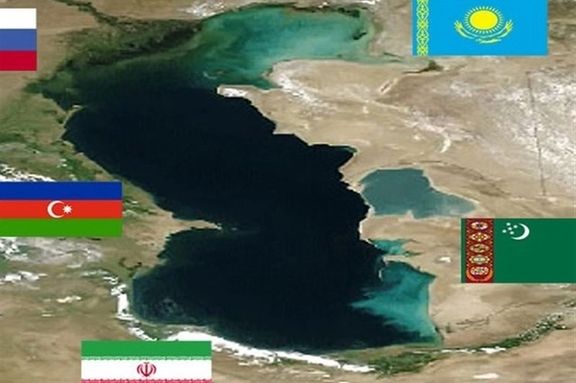
Iran’s minister of interior voiced concerns over the shrinking water level of the Caspian Sea, warning of its decline in coming decades.

Iran’s minister of interior voiced concerns over the shrinking water level of the Caspian Sea, warning of its decline in coming decades.
Without mentioning the inattention of the regime to ecological issues, Ahmad Vahidi emphasized the importance of sharing global incident experiences to collectively address crises.
“If conditions continue in this manner, the Caspian Sea will dry up in the coming decades, and for this reason, a solution must be considered,” he added.
The decline in the world's largest lake is said to result from significant precipitation and the annual water flow. However, Iran has recently pointed fingers at Russia, particularly highlighting the closure of critical entrances, notably the Volga River, as a contributing factor to the crisis.
In August, Ali Salajegheh, the head of the Iranian Department of Environment, highlighted ecological challenges arising from a one-meter reduction in the Caspian Sea's water level over the past 4-5 years, with an average annual recession of 20 centimeters.
According to the Central Asia-Caucasus Analyst, “This will have significant and serious implications, including a decline of the sea water level, a considerable retreat of the sea and increase of the land and coastal area especially in upstream countries (Russia and Kazakhstan), challenges to the operation of ports and shipping, as well as environmental consequences, particularly the drying of protected areas and wetlands."
It underscores that the Caspian Sea's water level has diminished by one meter in recent years and could potentially plummet by 9 to 18 meters by the conclusion of the 21st century.
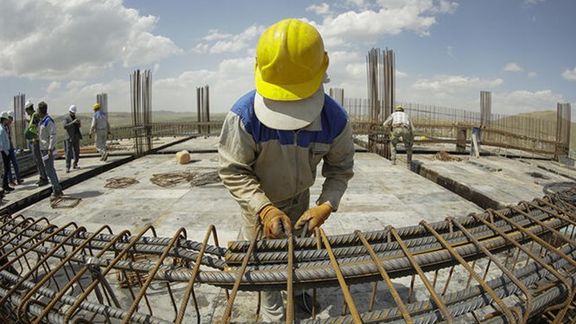
Hamid Reza Imam Gholi-Tabar, the inspector of the Supreme Assembly of Workers' Representatives, has admitted the country is among the world's worst for wages.
“Among the countries with the lowest wages for laborers in the world, Iran ranks only second to Venezuela,” Gholi-Tabar stated in a Monday interview with the state-run Tasnim news agency.
It is difficult to find the labor needed to fill the shortage of factories and manufacturing units due to low wages, the official said. He blamed the government for failing to fulfill its “inherent responsibilities” to support the “vulnerable members of society”.
Iran's raging inflation and stagnant economy have caused the minimum wage to fall so far behind that tens of millions have become "working poor."
In October, Etemad, an Iranian reformist newspaper, published an article highlighting the alarming growth of poverty among workers whose incomes have fallen below the poverty line. Reports in the paper indicate that workers' wages now only cover approximately 60 percent of their household expenses each month.
In accordance with Article 41 of the Labor Law, the Supreme Labor Council is responsible for determining the minimum wage for workers each year. Despite this, the government is not obligated to set wages per the figures published by the council. Based on its own interests, it increases wages. In recent years, the discrepancy has resulted in widespread labor protests.
A minimum wage increase, however, raises the overall cost for businesses, leading to layoffs or a reluctance to hire new employees.
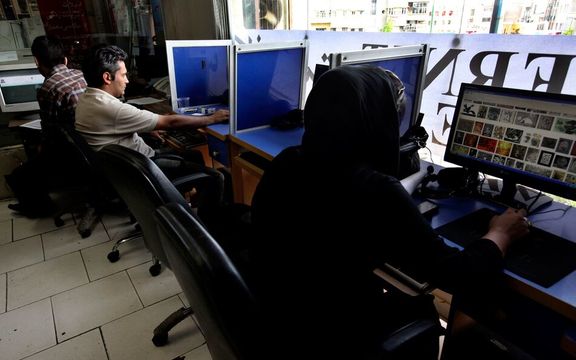
Internet companies in Iran have petitioned the government to increase their broadband and mobile tariffs by 100%, according to Faraz Daily, a pro-reform website.
This request comes at a time when users are experiencing low-quality connections and are forced to pay for expensive Virtual Private Networks (VPNs) and anti-filtering software to avoid the censorship imposed by the government.
For more than two decades, the clerical government has blocked thousands of websites and in recent year, most social media platforms. It also offers very slow Internet connection and often cuts service during protests.
Iran's Information and Communications Technology Minister, Issa Zarepour, stated on Monday that the increase in internet service rates has not yet been decided. He also reiterated his usual response to the issue by insisting that the increase would only happen "if the providers improve the internet quality". But users have long suspected that slow traffic is related to government actions and draconian controls.
Also, the adamant stance he takes on "better quality" might not be entirely genuine. Shargh Daily reported last month that Zarepour publicly opposes increasing Internet rates but behind the scenes is following up on it, neglecting the quality altogether.
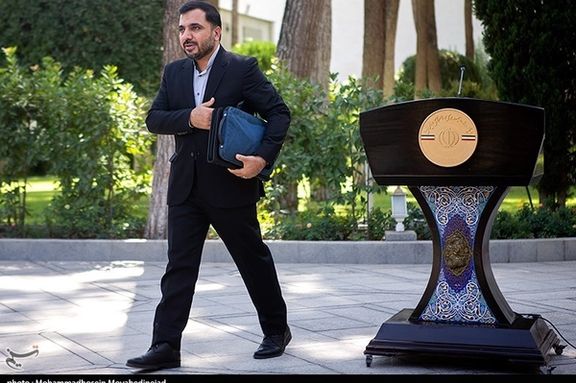
While President Ebrahim Raeisi promised free internet for the lowest income groups during his inauguration in 2021, the number of limitations on internet access and the price have gradually increased.
With these constraints in place, Iranian citizens are deprived of access to free information. Raisi's hardliner government has increased censorship. Numerous foreign and domestic websites, including reputable news outlets and social media platforms, have been added to the government blocking scheme.
The spiral of censorship measures has intensified since the beginning of the "Women, Life, Freedom" movement last year.
According to Freedom House, Iran was the Middle East's worst country for internet freedom in 2023 due mainly to severe and overzealous responses by authorities to nationwide protests.
However, the internet shutdowns and the filtering of popular messaging apps used by citizens continued even after protests subsided.
Legislators, such as Javad Nikbin, have alluded to a connection between those lobbying for internet censorship and those marketing tools that circumvent censorship, such as VPNs.
Lawmaker Jalal Rashidi Kouchi estimated that the financial turnover of VPN providers in Iran amounts to approximately 800 million to 1 billion dollars annually.
According to Kouchi, if the minimum monthly price of a VPN in Iran is $2, the country's citizens would be compelled to spend approximately $480 million annually to circumvent the regime's bans on such services as Instagram and WhatsApp.
But that is not the end of the story. Having a VPN active on your system will result in more data usage since some of that data is consumed by the VPN.
That amount according to the Farazdaily website means half of the traffic you buy from providers is consumed solely by using a VPN. And since the current administration has imposed more limitations, users are already paying more. Not just for more VPN but also more traffic.
With the providers asking for an increase in rates, consumers will be forced to pay yet another fee for "the most expensive low-quality service in Iran".
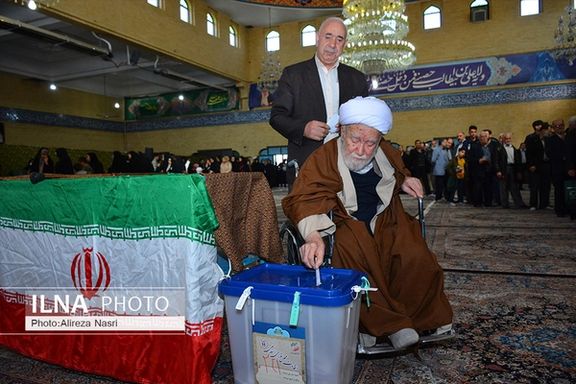
Mohsen Hashemi, the son of former Iranian President Akbar Hashemi Rafsanjani, has noted the expected voter apathy in the upcoming Iranian elections.
While claiming that moderate reformists advocate for lively elections, Hashemi expressed concerns about the prevailing supervisory atmosphere hindering vibrancy.
He emphasized the importance of the Guardian Council avoiding obstructive actions to ensure the elections are dynamic and representative.
Anticipation of a low turnout in Iran's March elections has heightened concerns, particularly after the disqualification of numerous candidates, including sitting lawmakers. Some disqualified candidates attribute the process to ultra-hardliners in President Ebrahim Raisi's administration and the interior ministry, accusing them of making arbitrary decisions.
Reports indicate that around 40,000 people registered as candidates for the 290 parliamentary seats, but the registration process was discreet, concealing candidates' identities. Prominent figures, including former Presidents Khatami, Ahmadinejad, and Rouhani, as well as former Majles Speakers Ali Akbar Nateq Nouri, Gholam Ali Haddad Adel, and Ali Larijani, who said they are not participating.
The ultraconservative Paydari Party, which currently dominates the Majles, appears content with the public's indifference, expecting an easy victory with many inexperienced lawmakers. Elections during the Islamic Republic have never been democratic for many reasons, but particularly for the fact that only candidates who agree with the principle of a religious state and clerical rule were allowed to run. However, increasingly requirements have become tighter, and only those loyal to hardliners have been able to compete.
According to Statista, during the presidential election of 2017, it is estimated that the voter turnout rate was about 48.8 percent.
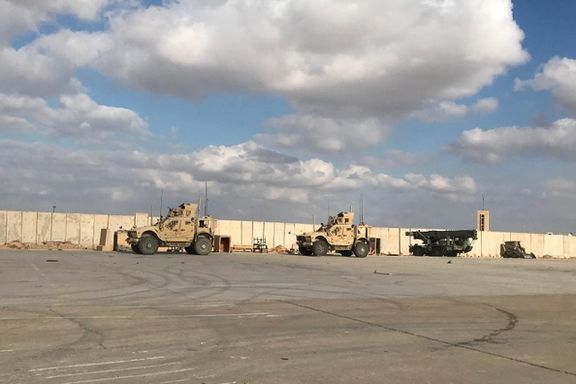
The IRGC-backed Islamic Resistance in Iraq, declared that it used unmanned aerial vehicles to target an American base in Syria.
The militant group stated that its fighters employed drones to target the base in Al-Khazra village in Syrian territory, taking the attacks on US targets in the region to over 100 since the Gaza war began on October 7.
Iranian proxies have said that the US backing of Israel in its retaliation of the Hamas invasion of October 7, killing 1,200 mostly civilians and taking over 240 hostage, led to the US attacks in the region.
Earlier reports on Saturday night had indicated that the Islamic Resistance in Iraq targeted a US base in the Hasakah province of Syria with rockets. Extremist militant groups supported by Iran, have launched attacks against US and Israeli targets in the region including Lebanese Hezbollah on Israel's southern border and attacks on Red Sea vessels by the Houthis in Yemen.
US Secretary of State Antony Blinken urged Iraq to fulfill its commitments to protect all bases hosting US troops earlier this month as Iraq and Syria come under continued attack. As a result of the Houthi attacks on vessels in the Red Sea, pledging to target US and Israeli interests, a multi-nation coalition has been led by the US to counter such threats, with at least 20 nations participating. Despite the initiative, the Biden administration faces increasing criticism for its perceived failure to deter Iran and its proxies in the Middle East.
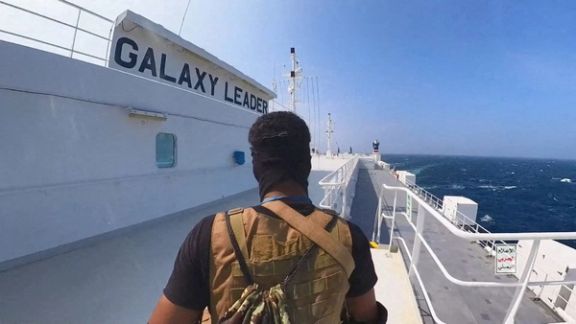
Yemen's Iran-backed Houthis have raised threats against all shipping in areas within their reach while stepping up recruitment, according to reports in The Times.
Thousands in the war-torn country have been hired since October 7, as the Yemeni militia steps up both naval and aerial attacks against Israel, the US and their allies.
Just last month, the Houthis' leader said 10,000 more troops had been recruited amid the dire poverty in the Middle East's poorest nation, and thousands more, including child soldiers, are now among those taken in the second round of training in the proxy war being waged against Israel, The Times reports.
Yemen is notorious for its taking on child soldiers, and the latest war, which is being waged in support of Gaza's Hamas militia, is the latest campaign which has seen the Houthis come back to the fore.
Houthis’ Information Minister Dhaif Allah (Dhaifullah) Al-Shami told Qatari newspaper Al-Araby Al-Jadeed Monday that any country that joins the US-led international maritime coalition - now comprising at least 20 nations - to protect Red Sea trade will become a target from the Yemeni rebels.
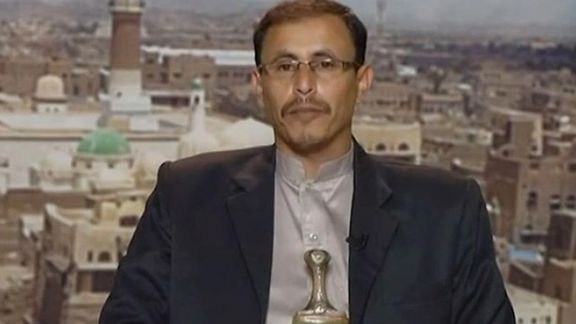
Hours after Washington launched the multinational force, Houthis threatened to ‘sink’ US warships. The new maritime coalition includes Britain, Canada, France, Italy, Spain, Norway, Netherlands, Seychelles and Bahrain. It was formed in response to Houthi attacks on commercial vessels passing through the Bab el-Mandeb Strait and the Red Sea, transiting between Asia and Europe through the Suez Canal. Saudi Arabia, Egypt and the United Arab Emirates have chosen not to join the multinational naval alliance.
“Any alliance of this kind is essentially a pact to protect Israeli ships, supporting Israel and encouraging it to continue its crimes in Gaza," al-Shami said. "Even if the entire world united forces to deter us, it would not work. As the coalition's circle widens, so will our targets."
The threats echo similar warnings by the Iran-funded militia group, saying they target all ships heading to Israel, regardless of their nationality. The Houthis have attacked and seized several Israeli-linked ships in the Red Sea and its Bab al-Mandab strait, a sea lane through which most of the world's oil is shipped, and fired ballistic missiles and armed drones at Israel.
Also on Monday, Iran’s Foreign Ministry Spokesman Nasser Kanaani claimed that Iran is an integral part of ensuring security in international waters, playing a crucial role in maritime security and international trade. “The US government is not in a position to level accusations against Iran in this regard,” he said.
On Friday, the White House said that Iran was "deeply involved" in Yemen's Houthis’ operations against commercial vessels in the Red Sea and its intelligence was critical to facilitate the attacks. While the US has avoided pointing direct blame at Iran for regional tensions, instead focusing on its proxies, the Pentagon announced that the kamikaze drone that struck an oil tanker in the Indian Ocean early Saturday morning was launched directly from Iran.
Referring to the Indian Ocean attack, Kanaani said that “US accusations are endless," trying to project that the Islamic Republic is not involved in the attacks.
Palestinian Islamist militia Hamas, another Iran-backed group, declared war on Israel on October 7 in a surprise attack that they codenamed Operation Al-Aqsa Flood, killing over 1,200, mostly civilians and taking about 250 hostages. In retaliation, Israel has been pounding the enclave to uproot Hamas, which has made the war exceedingly bloody, hiding deep among the civilian population and underneath the coastal sliver’s non-military facilities.
The Houthis are one of several Iran-backed militant groups in the Middle East. They have been effectively in a state of war with Saudi Arabia since 2015 and have claimed support for Palestinians since the Hamas terror attack on Israel on October 7. The Houthis have waded into the Israel-Hamas conflict - which has spread around the region - attacking vessels in vital shipping lanes and firing drones and missiles at Israel more than 1,000 miles from their seat of power in the Yemeni capital of Sanaa.
Iran supports Hamas but says it did not play any role in the Islamist militants' terror attack that triggered the current crisis. Tehran also denies involvement in the recent attacks on vessels in the Red Sea. Iran also backs Hezbollah, a Lebanese militant group that has deep ties with Hamas and Islamic Jihad, another Palestinian faction in Gaza that is also backed by Iran. Since October 7, it has also been the most active in its attacks on Israel's northern border since the second Lebanon war.
Iran's current war strategy is employing proxy forces to target Israel, Israeli assets, and US military installations in the region. Since the October 7 attack, Tehran has been warning of the spillover of the conflict in case of a regional escalation, but at the same time cheers attacks against Israel and the United States.